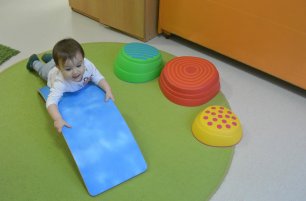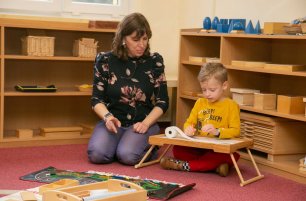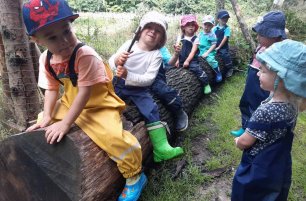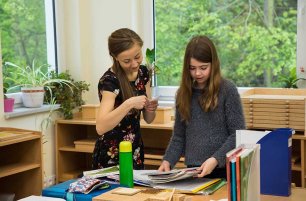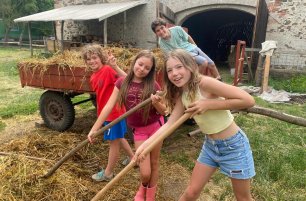Avoiding Labels
What exactly does it mean to label a child?
Labels, be they positive or negative, can do more harm than good to a child’s self-esteem and emotional development. They’re easy to say without thinking or in the heat of the moment, and many adults think them harmless. However, labels such as “you’re naughty”, “he is too shy”, “she’s bossy”, “she is a leader” can greatly influence how a child views him or herself; by labeling the child instead of his or her actions, we unwittingly create a permanent trait of who the child thinks he or she is. This is when labels become a dangerous mistake.
What's harmful about labeling?
-
Labels box a child in - Whenever we label someone, even if we don’t say it out loud, in some ways, we are setting them up for more of that behavior. Think of us as adults and how we approach stereotypes. A child who is labeled “naughty” will be seen as such even when his or her motives are kind and innocent. Labelling prevents us from seeing the person or the child for who they truly are.
-
Labels influence expectations - In extreme cases, labels – even positive ones - help to form unrealistic expectations of a child, which can create perfectionist tendencies or anxiety. They definitely change our expectations and in turn create a self-fulfilling prophecy of the child’s behavior.
-
Labels can be wrong - Have you observed a child greeting teachers, other adults or even perfect strangers with smiles and waves on one day, and then hides completely the next? Humans have many complex emotions, behaviors, personalities and preferences, and the same goes for a young child. It’s impossible to summarize them in a simple label!

Suggestions to prevent labeling
Let’s start with baby steps. First, try to catch yourself when you use labels. Such awareness can help prompt you to hold back the next time you begin to label a child out loud, and will eventually help you to gather your thoughts and clarity when labels come to mind. Second, try to see a child as a person with behavior, be it positive or negative, and separate your views of a child from his or her behavior. This will help you connect and empathize with a child even when he or she misbehaves.
What we can do is to practice labeling a child’s behavior instead of them. For example, instead of saying, “you are shy”, try statements such as “it takes you a while to be comfortable with people” or “you are talkative with people you know well”. By taking steps to be aware of your choice of words, choosing the right words and approach, and labelling and addressing a child’s behavior instead of them, you help set them up for success in life rather than hindering them from reaching their fullest potential.
by Caryn Khoo
Want to learn more? Read our next article:
